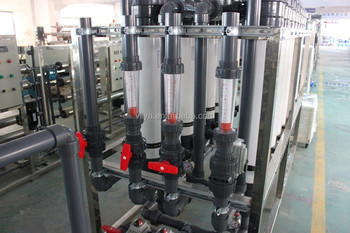| Model: | UF system |
|---|---|
| Brand: | Vliya |
| Origin: | Made In China |
| Category: | Industrial Supplies / Machinery / Filters |
| Label: | UF system , water treatment plan , NF & RO water treatm |
| Price: |
US $8000
/ set
|
| Min. Order: | 1 set |
| Last Online:08 Jan, 2016 |
Description of UF system NF & RO water treatment plant
Nanofiltration (NF, Nanofiltration) is a cross between a pressure reverse osmosis and ultrafiltration membrane separation process between the driver, the nanofiltration membrane pore size range of about several nanometers. Compared with other pressure-driven membrane separation process, appeared later. Its appearance can be traced back to research JE Cadotte's NS-3 0 0 films in the late 1970s, after nanofiltration developed rapidly, the film is set in the mid-1980s commercialization. Nanofiltration derived mostly came from the reverse osmosis membranes, such as CA, CTA film, aromatic polyamide composite membrane and sulfonated polyether sulfone film. However, compared with reverse osmosis, its lower operating pressure, and therefore the nanofiltration is called "low pressure reverse osmosis" or "loose reverse osmosis" (Loose RO)
Nanofiltration as a new type of membrane separation technology, technical principles similar mechanical sieving. However, with a charge of nanofiltration body. This is it at low pressure is still an important cause of high performance and desalination membrane MWCO hundreds of inorganic salts may also be removed.
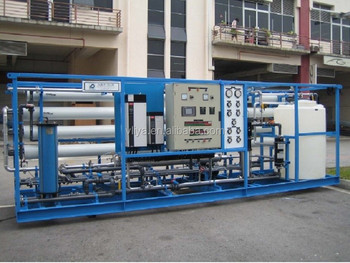
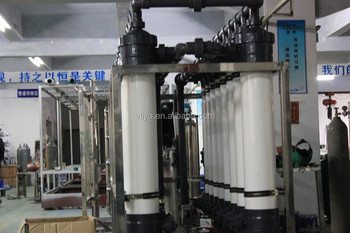
The ultrafiltration systems are usually operated in a pressure range of 10 to 50 psig and they remove particles in size down to as small as 0.02 µm. Typical flux (rate of finished water permeate per unit membrane surface area) for UF system is 10-100 gallons per square foot per day (gfd).
Our membrane filtration system uses advanced hollow fiber or ceramic technologies which operate in the outside-in or inside-out direction of flow. Given the small membrane pore sizes used with these technologies, fouling due to deposition of organic and inorganic compounds on the membrane may occur if the ultrafiltration system is not properly designed and operated. Therefore, we use automated backwashing, air scour and chemical flushing processes to restrict the rate of membrane fouling within acceptable limits. Chemical cleaning is employed once the maximum transmembrane pressure has been reached. Typical cleaning agents utilized include acids, caustic, surfactants, enzymes and certain oxidants, depending upon membrane material and fouling type.
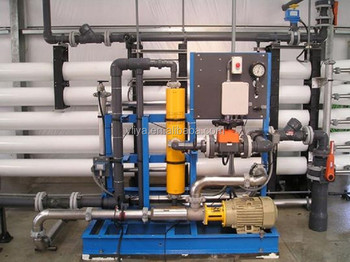
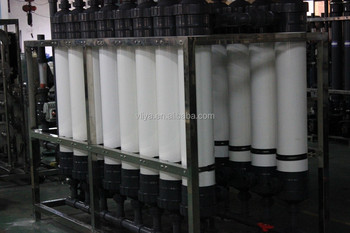
Application of UF system NF & RO water treatment plant
| • Boiler or cooling tower feed water |
| • Municipal drinking water |
| • Surface or ground water treatment |
| • Brackish & seawater desalination |
| • Industrial wastewater treatment |
